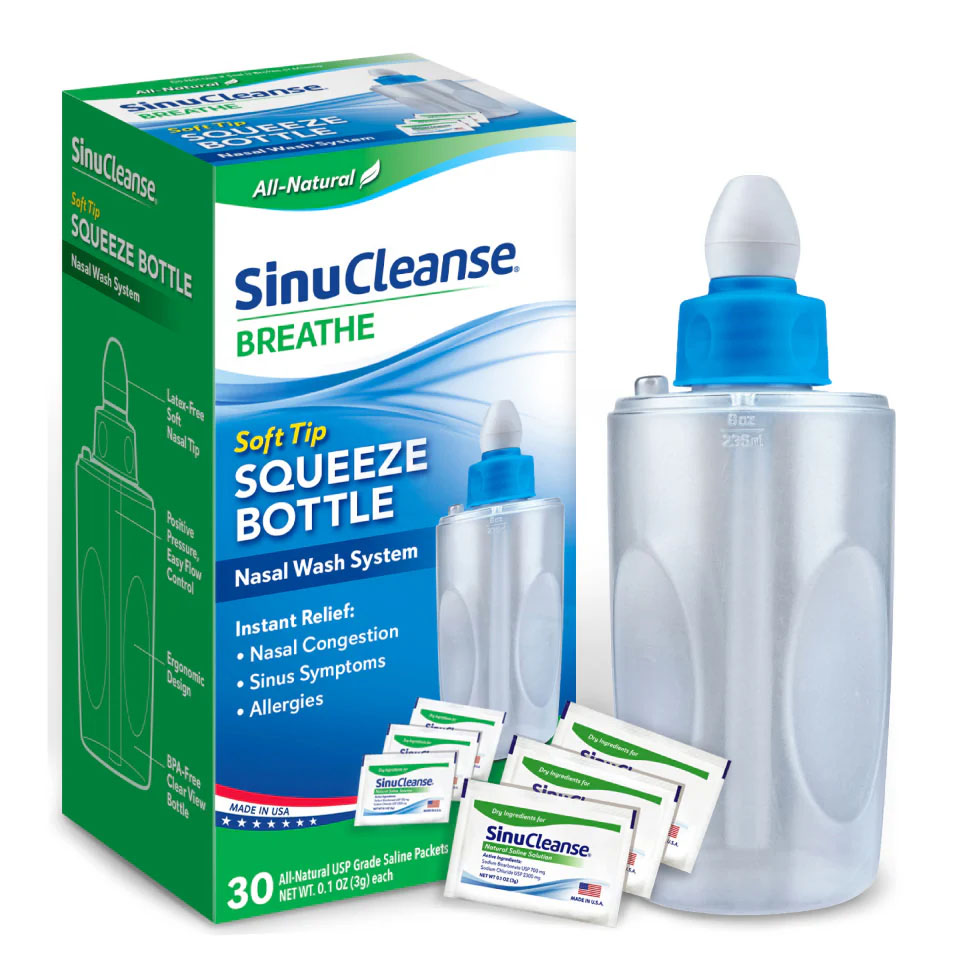Season is the season of cold peak and flu, but before catching that nasal washing to clean your stuffed nose, you may want to take a closer look at the label.
Ascent Consumer Products Inc. It is voluntarily remembering a single part of its popular Sinucleanse Soft Soft Soft System System, as the tests confirmed the presence of Staphylococcus aureus, a dangerous bacteria.
The product is commonly used to rinse nasal passages and temporarily relieve symptoms of sinusitis, cold, flu or allergies.

The affected group – with the number 024122661a1, expired December 31, 2027 – distributed across the country in January through online retail shops and retailers. It includes a squeeze bottle and 30 salty packages.
The US food and drug administration (FDA) has warned that the use of contaminated nasal washing can lead to blood infections, especially to individuals with nasal injuries or irritation.
Bacteria can cause other serious and potentially life -threatening conditions, including heart infections, splenic abscesses and meningitis. It can also lead to bacterial sinusitis, which can result in eye tissue infections, vision problems and even damage to the cranial nerve.
No matter has been reported. Meanwhile, ascent consumer products have informed the retail distributors and sellers to stop the sale of the affected group.
“Customers who have this product must interrupt use immediately and return it to the place of purchase or remove it,” the FDA advised in a Tuesday warning. Customers who experience a negative reaction can report it online.
The post managed to climb consumer products for comment.
Fashion solution for stuffed noses
For many people, nasal irrigation or rinsing of sinusitis has become a medicine to go when hits the blockages.
The technique involves moving the saline solution through nasal passages to ignite mucus, debris and allergens. Tools like Neti pot, squeeze bottles and rubber nasal bulbs push the liquid through one nose and outside the other.

This practice has been about for centuries, with roots that can be traced back to ancient Ayurvedic medicine.
The market of nasal irrigation device has exploded in recent years as it is a simple, cheap and drug -free approach to facilitate home blockages.
But it’s not just for seasonal sniffles. In one study, patients with chronic rhinosinusitis saw a 64% improvement of the severity of the symptoms as they have daily salty nasal rinsing.
When used properly, the side effects of nasal irrigation are generally soft and short -lived, such as a slight burning sensation or a strong stroke in the nose.
However, there is a risk of infection if contaminated water or an unclean device is used, which can easily restore harmful bacteria to nasal passages.
#Cold #product #flu #remembered #due #infection #concerns
Image Source : nypost.com